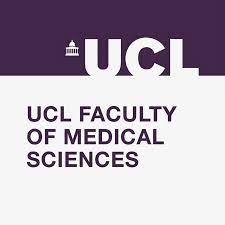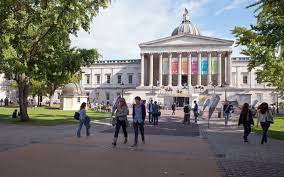This six-year programme includes an integrated BSc (except for graduate entrants with UK degrees), leading to the awards of Bachelor of Science (BSc) and Bachelor of Medicine and Bachelor of Surgery (MBBS). The curriculum is centred on key health problems, clinical presentations and patient pathways. You will have clinical contact throughout, with patients and doctors.
Programme starts
September 2022UCAS codeA100DurationFull-time: 6 yearsAccreditationGeneral Medical Council (GMC)Application deadline15 October 2021LocationLondon, Bloomsbury, London, Hampstead (Royal Free Hospital) and London, Archway (Whittington Hospital).

Entry requirements
A Levels
GradesA*AASubjectsBiology and Chemistry required.GCSEsEnglish Language and Mathematics at grade B or 6.
Contextual offer
GradesAAB (more about contextual offers)SubjectsBiology and Chemistry required at grades AA.GCSEsEnglish Language and Mathematics at grade B or 6.
IB Diploma
Points39SubjectsA total of 19 points in three higher level subjects including Biology and Chemistry, each with minimum score 6. No score below 5.
Contextual offer
Points36 (more about contextual offers)SubjectsA total of 17 points in three higher level subjects with a minimum score of 6 in Chemistry and Biology and no score below 5.

Additional tests
BMAT
Student applying for Medicine must take the BioMedical Admissions Test (BMAT).
UK applicants qualifications
For entry requirements with other UK qualifications accepted by UCL, choose your qualification from the list below:Select qualificationBTEC National DiplomaAccess to HE DiplomaCambridge Pre-U Principal SubjectsScottish Advanced HighersWelsh Baccalaureate
EQUIVALENT QUALIFICATION
We are aware there are other courses which are now part of the QAA Subject Descriptor pilot. We may be able to accept applications from candidates studying on these approved courses and ask that you contact us directly before applying.
International applications
In addition to A level and International Baccalaureate, UCL considers a wide range of international qualifications for entry to its undergraduate degree programmes.
Undergraduate Preparatory Certificates
UCL Undergraduate Preparatory Certificates (UPCs) are intensive one-year foundation courses for international students of high academic potential who are aiming to gain access to undergraduate degree programmes at UCL and other top UK universities.
Typical UPC students will be high achievers in a 12-year school system which does not meet the standard required for direct entry to UCL.
English language requirements
If your education has not been conducted in the English language, you will be expected to demonstrate evidence of an adequate level of English proficiency. Information about the evidence required, acceptable qualifications and test providers can be found on our English language requirements page.
The English language level for this programme is: Advanced
A variety of English language programmes are offered at the UCL Centre for Languages & International Education.
Degree benefits
- As a student of medicine at UCL you will be joining a prestigious medical school which has educated doctors since 1834 and today graduates approximately 350 distinctive ‘UCL Doctors’ each year. Located in the heart of London and working closely with several major teaching hospitals, it provides a truly world class medical education
- Six former students and staff have been awarded Nobel Prizes. Medical advances have included the discovery of adrenaline, the immune system, the hormone aldosterone and auto-immune disease.
- Students can expect high quality teaching by an internationally acknowledged faculty of education and research leaders and a committed team of NHS based teachers whose aim is to provide the best possible student experience
- UCL has one of the widest ranges of integrated BSc opportunities in the UK
Accreditation
The MBBS is accredited by the General Medical Council (GMC) as a Primary Medical Qualification
UCL medical school acceptance rate
Although most degrees in UCL require AAA, it is less difficult for A-level students today to achieve. Moreover, if we compare UCL to other G5 universities in the UK, we will find that UCL is the easiest to attend among these universities regarding admissions. The tier would be: Admissions: IVY > Top 20 U.S. ≥ UCL.
| School | Location | Acceptance Rate |
|---|---|---|
| UCL Medical School | Bloomsbury | 11.9% |
| University of Aberdeen School of Medicine | Aberdeen | 15.1% |
| University of Birmingham Medical School | Birmingham | 21.8% |
| University of Dundee, School of Medicine | Dundee | 11% |
UCL medical school entry requirements
Applicants should carefully check that they will meet UCL Medical School’s minimum academic standard before making an application. Please read the 2022 entry requirements and also see the UCL online prospectus entry.
Candidates may re-sit GCSE subjects in order to meet the GCSE requirements. Graduates who re-sat A levels before their degree will also be considered. Otherwise, we do not accept qualification re-sits, including re-starting Year 12.
In addition to reading the Entry Requirements information, international applicants who do not speak English as a first language should ensure that they take one of the English Language qualifications (to “advanced level”) from the list of those accepted by UCL.
All applicants must take the Biomedical Admissions Test (BMAT). BMAT will be used to assess scientific aptitude and will focus on scientific abilities relevant to the study of medicine. The BMAT scores are used, along with other information in the UCAS application, to help us select candidates for interview.
Cambridge Assessment Admissions Testing is monitoring the situation with the spread of Novel Coronavirus very closely. For all the latest updates and to find out how it might affect your admissions test, please visit their dedicated COVID-19 webpage.
Access Arrangements are available for the BMAT if you have a disability or special requirement, and are entitled to support for other exams.
Requests for Special Consideration for the BMAT exam must be applied for following Cambridge Assessment Admissions Testing procedures. UCL does not take such requests directly from the candidate, test centre or school.
Non-academic requirements
Minimum Age
Students must be 18 years of age at the time they start the medical degree programme. Applicants who apply but would be under 18 at the start of that year’s programme will be considered for a deferred place or advised to reapply. The early clinical contact in our programme means that younger students cannot be admitted as they would not be able to fully participate in the course. There is no upper age limit.
Occupational Health Clearance
All offers include a condition requiring occupational health clearance. Detailed guidance regarding the required occupational health clearance will be provided to offer-holders by the Admissions Officers.
- Occupational Health procedure overview
Police Checks
Admission is subject to the Rehabilitation of Offenders Act (1974) Section 4(2) (Exemption) Order 1975 and DHSS Circular HC (88) 9 guidelines regarding child protection and police checks. It is also considered important to ensure that an applicant’s attitudes and values are such that he or she can reasonably be admitted to the medical profession.
Applicants accepting an offer will be required to undertake a police check. International students are requested to approach their local police force for a police check. UK students must be checked through the Disclosure and Barring Service (DBS). DBS checks are instigated during the summer. Further details will be provided to firm offer-holders.
From 2021 entry students will be responsible for costs associated with DBS enhanced checks (or equivalent police checks) required for patient contact.
- Police checks and DBS clearance for medical students
Leave a Reply